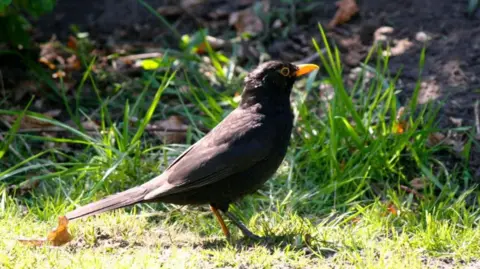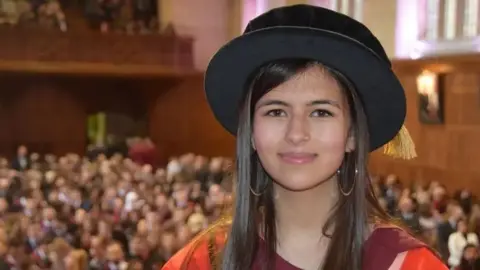Campaigner warns blackbird decline is 'taste of future'
 BBC
BBCA young ornithologist has warned that a mosquito-born disease linked to a sharp decline in blackbird populations is "a taste of what's to come".
Mya-Rose Craig, from the Chew Valley in Somerset, said the spread of the Usutu virus is proof British wildlife is struggling "in a way people don't realise".
Scientists are monitoring the spread of the virus amid warnings that mosquitoes and the diseases they carry may expand their range under climate change.
Ms Craig, 23, who is known as BirdGirlUK on social media, has been campaigning for the environment since the age of 13. She said: "One of the reasons [blackbird decline] concerns me is because it's getting worse because of climate change."
She added that with "warmer weather and increased flooding, it feels like kind of a taste of what's to come".
Data published earlier this week revealed the Usutu virus has spread across most of southern England in just five years, and blackbird populations in Greater London have fallen as much as 40% in that time.
Ms Craig, who was awarded an honorary doctorate by the University of Bristol in 2020, told BBC Breakfast: "My biggest concern is that blackbirds are one of the most common species in the UK, they are everywhere.
"When you hear bird song, it's quite often blackbirds that you are hearing, so I think [their decline] is quite upsetting."
 University of Bristol
University of BristolMs Craig said she was a "big defender" of the UK's "small, brown" birds.
"Our garden species are so special, which is why I find it so worrying - the speed of decline we are experiencing at the moment," she said.
"Our wildlife is really, really struggling in the UK in a way I don't think people really realise."
Ms Craig added that blackbirds are far from the only species to be hit by climate change, pointing out that starling populations have fallen 80% since the 1960s.
"I think a lot of the time, when we are talking about species decline, it feels very separate, but actually imagine a city without bird song - it has a really terrible knock on effect on people as well," she said.
Follow BBC Bristol on Facebook, X and Instagram. Send your story ideas to us on email or via WhatsApp on 0800 313 4630.
